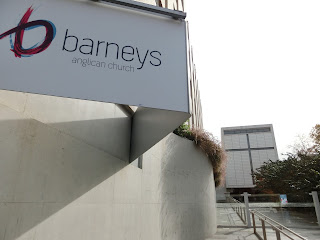blindness and deafness - 14th week tuesday
When we hear stories of blindness, deafness
and dumbness in the gospel there is always a deeper meaning attached to
them. These are not just physical
defects, they can also be spiritual, they can be symptoms of a lack of faith. These are not just defects of the senses but
they can also be a defects in our psycho-emotional and affective lives. There are defects there too which need
healing. There are defects there too which
need to be presented to the healing hand of Jesus.
In our gospel today this is exemplified by
the Pharisees who cannot see or probably who refuse to see that God is at work
in Jesus. They do not want to hear and
understand what Jesus is trying to say to them.
And thus they refuse to speak the words of life which Jesus shares with
them.
In our dialect we have an interesting way of
designating somebody who is not actually deaf but who acts deaf. We refer to this action nagapa
bungol-bungol. We repeat the word that
pertains to that defect.
Nagapabulag-bulag. Nagapamango-mango. In other words, nagapakuno-kuno. When we refuse to accept the data from our
senses we intensify the defect, they become more than just physical defects for
indeed they are now defects of the will.
The person is capable, there is nothing wrong with his or her capacity,
however this person refuses to use them. And that according to John Chrysostom is
not just a natural defect but the malignity of the demon or the evil touch of
the devil in the person himself that creates ill-will on the practices of
religion. Thus the saint said this
person needed to be brought to Jesus by others.
He cannot ask for himself for he does not have a voice, what with the
demon chaining his spirit together with his tongue. In the gospel, faith was not required from him
to be healed because he can never be capable of faith. If he was healed, it was because he was
brought to Jesus by others. St John
Chrysostom's reflection on our gospel today.
Many of us probably may have encountered or
know people we can consider blind, deaf, dumb or mute to Jesus and the faith he
offers. Many of them are good people,
many of them are people we work with, people we care about and love – good
people, but they refuse to see, they refuse to hear or acknowledge or
understand things in the light of faith.
Probably there are those of you here who have them in your own family, a
son, a daughter, a husband or your in-laws – they are exactly your opposite –
you are so passionate about your faith and they however either do not mind us or
even sneer at your passion. They may not
be atheists or unbelievers, at best they may be skeptics or they may even be religious,
but they do not do what we expect from religious Catholics who go to mass
regularly and come to confession. And yet they are good people.
St. John Chrysostom says it is our faith that
will bring them to Jesus and it is Jesus' initiative that will open their eyes,
ears and mouth, it is up to Jesus to drive away what he calls the malignity of
the demon or the ill will towards religion or the practices of religion
I remember when I entered the seminary in
first year high school I began praying for a loved one to become a practicing
catholic once again. I never missed that
prayer every night before I sleep – every night. The prayer was answered 35 years later. Not only your faith but especially the
initiative of Jesus, the divine initiative.
We have to learn to wait too, and sometimes waiting it out for a very
long time.
We never give up on each other. In this year of mercy let us do something for
people who have what John Chrysostom call the malignancy of the demon, to allow
our faith to bring them to the attention of Jesus and to wait, to never give up
waiting for Jesus to grant our healing request.

Comments